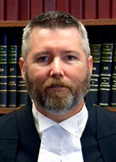The Golden Compass: Not Pro-Reason, (and not atheistic?)
On the basis of a "status" entry on my Facebook profile, a facebook friend (Natasha Blair) asked whether I didn't like "The Golden Compass". The book's author, Philip Pullman, is a self-styled "atheist". He reportedly made comments to the effect that the purpose of his book series "His Dark Materials" (of which The Golden Compass is the first book) is to turn children into atheists. Based primarily on such reports, religious communities (especially Catholics) have spoken out against going to the movie version that was released recently in theatres.
Having received other enquiries about my views on the book/movie, I thought I'd share here what I wrote on Natasha's wall...with a few additions.
I watched "The Golden Compass" at the theatre the other day, and I'm almost finished the book. The movie is not perfectly faithful to the book, but it is pretty similar. In each case, the story is chock full of talking animals, flying witches, and grumbles about the church...but no grumbles about allegedly supernatural things, apparently. So far (and I'm only on the first of several books in the series), Pullman appears to be attempting to champion free inquiry, and to condemn the Catholic church as the enemy of free inquiry. However, his choice to use talking moths and bears, and magical flying witches, to make his point undermines his case against the church - and against religion and God - entirely. Preventing free inquiry is but a non-essential: it is but a side-effect of religion's assault on the efficacy of man's rational faculty. Reason, not "free enquiry", is the intended victim not merely of "the church" but of all advocates of "the supernatural".
By making his case with supernatural characters, Pullman cannot help but imply to children that supernatural beings might exist. If that inference can easily be made by children - and it can - then tirades about the church stifling "free inquiry" fail to imply anything more than a call for the church not to stifle free inquiry...a call for the separation of church and state. Such a call is not the same as - and will not be inferred to be the same as - a call to be rational, and to reject beliefs in "the supernatural".
Putting aside essential arguments, one is certainly left asking: "Why on earth should I refrain from adopting a belief in a supernatural being called 'god', but entertain a belief in supernatural beings that take the form of talking bears and flying witches?".
I had hoped that the series might serve children well by demonstrating the importance of not engaging in any form of dishonesty - with oneself or with others - about anything, including the facts of reality. Instead, the series appears little more than a pro-mysticism, anti-Catholic tirade...something resembling a battle to separate the Catholic Church from the governance of Britain. Yawn.
Perhaps Pullman will turn his guns on irrational beliefs, such as the supernatural, later in the "His Dark Materials" series. On the basis of what I've read/seen so far, however, it seems rather unlikely. The field remains open for a pro-reason book for children.




<< Home